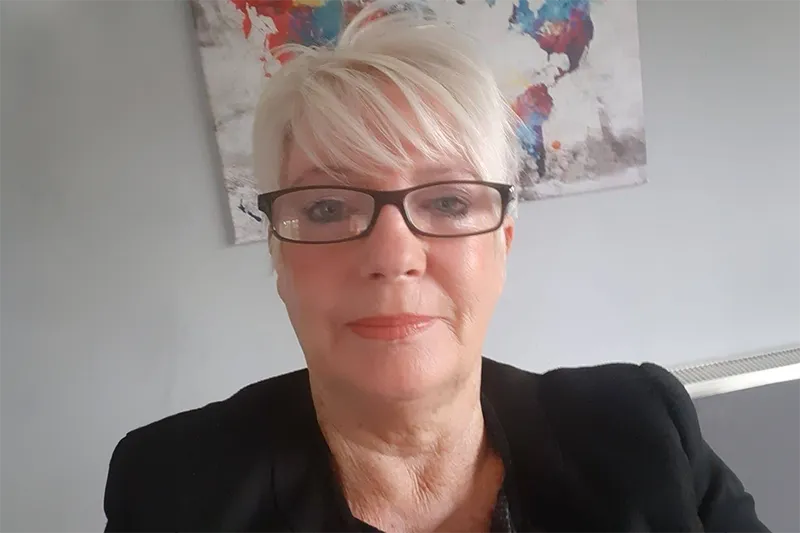How to make the most of your digital marketing with limited resources
 Katherine Masters
Katherine MastersAndy Headington, chief executive of Adido, a specialist digital marketing agency, shares practical tips and advice for homeworkers and small independent travel agents
Digital marketing is so much more than just writing a few social media posts or popping keywords into your content here and there – it’s a complex ecosystem with lots of moving parts.
While larger agencies and operators tend to have a team of people to look after different elements, such as SEO, PPC and content creation, homeworkers or small independents have the difficult task of handling digital marketing alone.
Here are eight different strategies to help you become the ultimate one-man band, without biting off more than you can chew.
1. Set out clear goals and objectives
What makes digital marketing so tricky is the fact it has no beginning and no end – so it’s up to you to define your own path and goals. By mapping out a clear strategy, you’ll be able to focus your efforts and measure your progress effectively. Start by defining specific, measurable, achievable, relevant and time-bound (SMART) objectives. These could range from gaining a certain number of followers on social media to increasing your rankings on Google. Whatever they are, you should ensure they are linked to commercial outcomes. Followers on social media who don’t contact you or rankings that don’t lead to enquiries won’t help your business or keep your sales team happy. Once these objectives are in place, they will not only guide your marketing strategy but also help you manage your time and budget effectively.
2. Use the right marketing tools
Having the right tools and resources can make the world of difference in terms of how you manage your digital marketing tasks. Whether it’s finding the right keywords, measuring performance, scheduling social media posts or creating email marketing campaigns, ensuring you have the best tools at your disposal can save a lot of time.
Here are some of the tools you can use:
● Keyword research: Semrush, Google Keyword Planner, Ahrefs
● Data analytics: GA4, Piwik Pro, Matamo, Google Tag Manager
● Paid advertising: Google Ads, Bing Ads, Meta Ads
● Email Marketing: Force 24, Mailchimp, Campaign Monitor
● SEO: Google Search Console, Screaming Frog, CRM: HubSpot, Pipedrive, Active Campaign
● Customer Insights: Social media analytics, GA4, SparkToro, Hotjar
3. Don’t spread your social media too thinly
Just because you can be present on every social media platform doesn’t necessarily mean you should. This is why so many marketing teams have a dedicated social media manager – it’s a full-time role that requires careful planning and constant monitoring, not to mention all the hours clocked up creating fresh, engaging content. Start by identifying the main social media channels your target audience uses and build a presence by posting regularly and responding to reviews and queries.
4. Create evergreen content
Some content has to be seasonal in nature relevant to peak booking periods or say winter sun offers, but creating evergreen content – i.e. content that is timeless and not specific to a particular event, date or season – means you can get more longevity out of your work without having to constantly pump out fresh content. The odd tweak may be needed here and there, but make some of your content the gift that keeps on giving.
5. Automate mundane, repetitive tasks
Given how many hats you wear in a one-person team, it’s always wise to automate as many tasks as possible, leaving you to focus on the important stuff. This can include scheduling blog posts, emails and social media posts in advance.
You can also use AI tools such as ChatGPT to help create drafts of emails and blogs – just remember to carefully edit the final version to ensure it follows your brand tone and resonates with your target audience.
6. Set realistic expectations on what you can achieve
There’s nothing wrong with being ambitious, but with so many plates spinning, it’s sometimes best to accept that you simply don’t have the time, skills and budget to do it all.
This is where prioritising small, manageable tasks can help you avoid burnout. Start by calculating how many hours you have available per week for your online marketing activities, then estimate what you can realistically achieve in that time. You may need to be brutal when it comes to cutting out tasks that are lower priority, whether that be blog writing or attending a webinar, but remember that focusing on fewer, high priority activities means you will typically achieve far more than spreading yourself too thin across numerous tasks. Quality over quantity is paramount when resources are limited.
7. Keep up to date with industry trends
Trying to stay on track with your own marketing plan can sometimes mean you’re not keeping one eye on industry trends and innovations. It’s imperative for any small business to not just keep abreast of what’s happening but to actively stay one step ahead of the competition. By staying on top of industry trends, you can anticipate changes and adapt your strategies accordingly, thus ensuring you are as competitive as you possibly can be. Attend relevant conferences, webinars and workshops or follow / connect with industry leaders to tap into their knowledge.
8. Partner with a digital marketing agency
As much as we might strive to be a Jack or Jill of all trades, there may come a time when you need to call in the experts to take your marketing strategy to the next level. Partnering with a digital marketing agency can provide you with on-hand expertise, advanced marketing tools and a wealth of other resources to help your brand soar. This can also free up your time to focus on other aspects of your business while ensuring your digital marketing efforts are in the safest of hands.
Sign up for weekday travel news and analysis straight to your inbox
Supplier Directory
Find contacts for 260+ travel suppliers. Type name, company or destination.
















